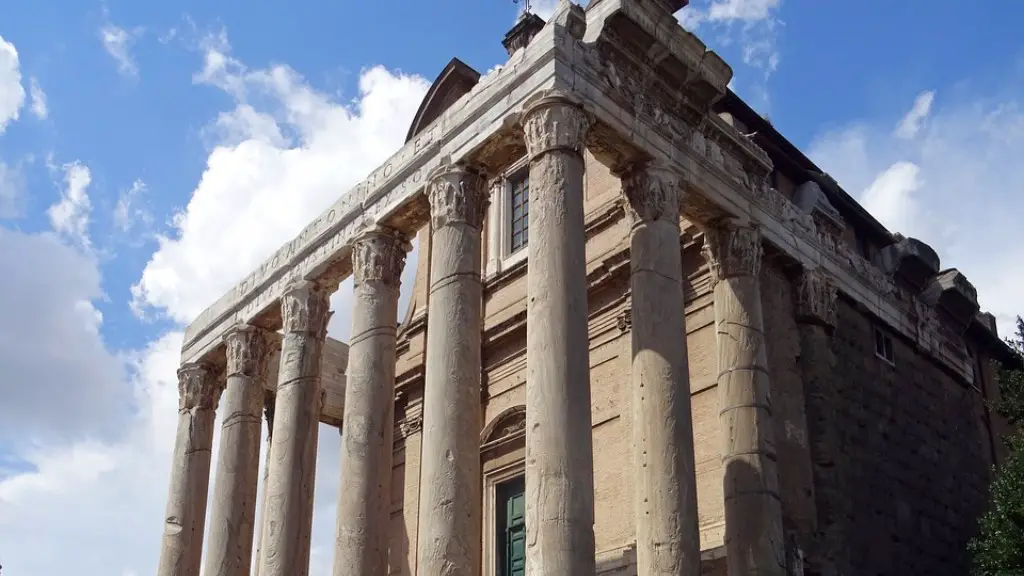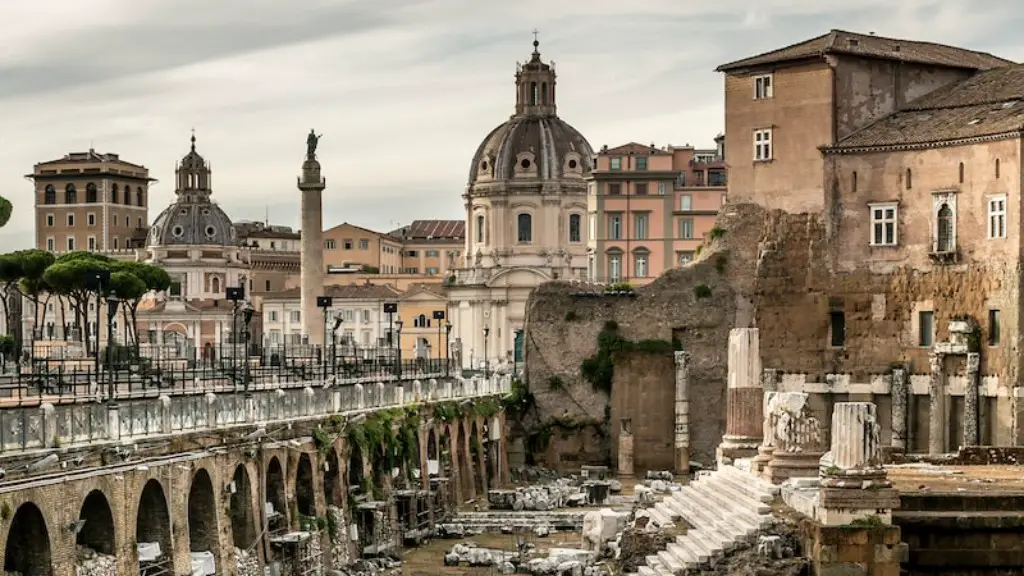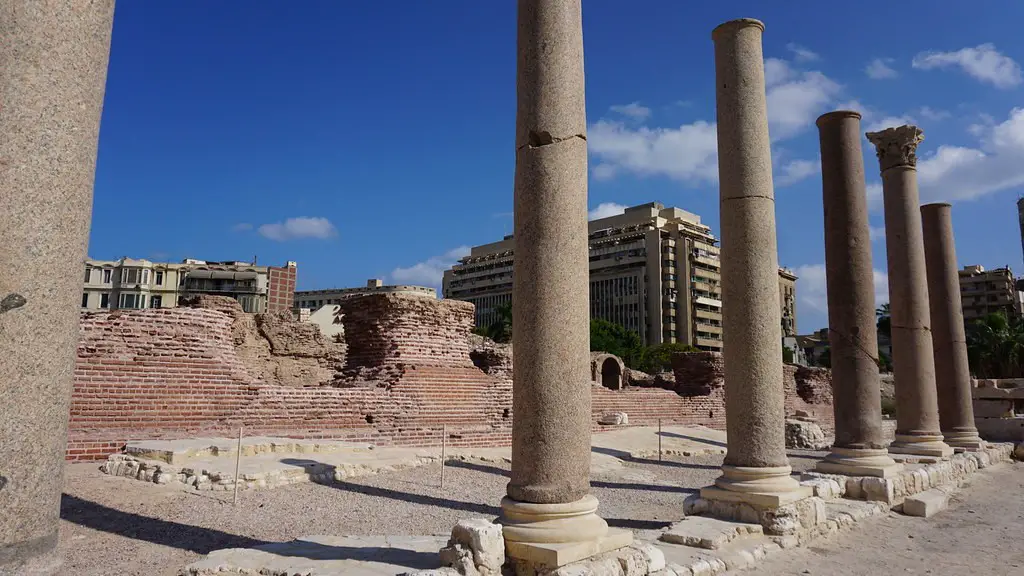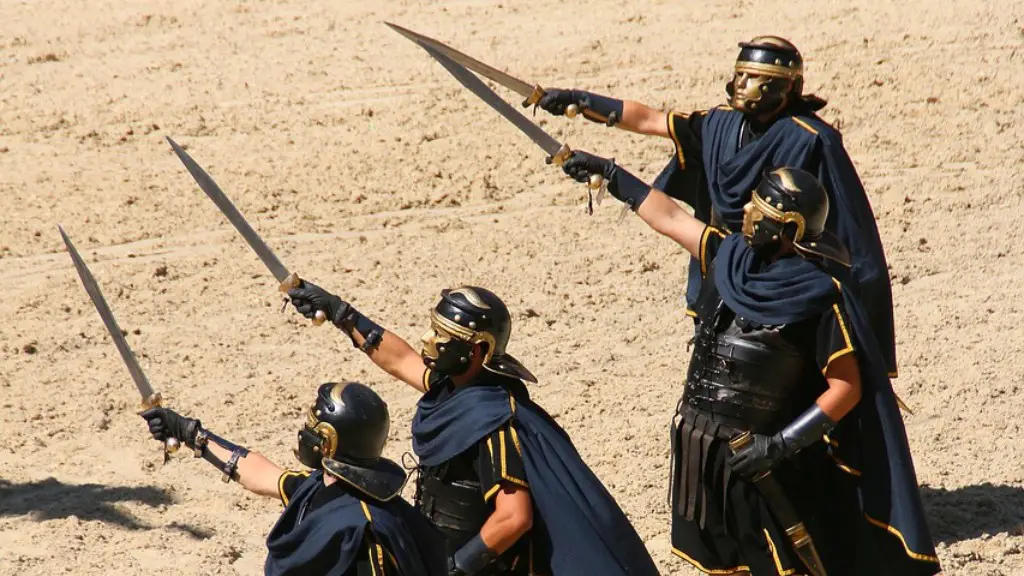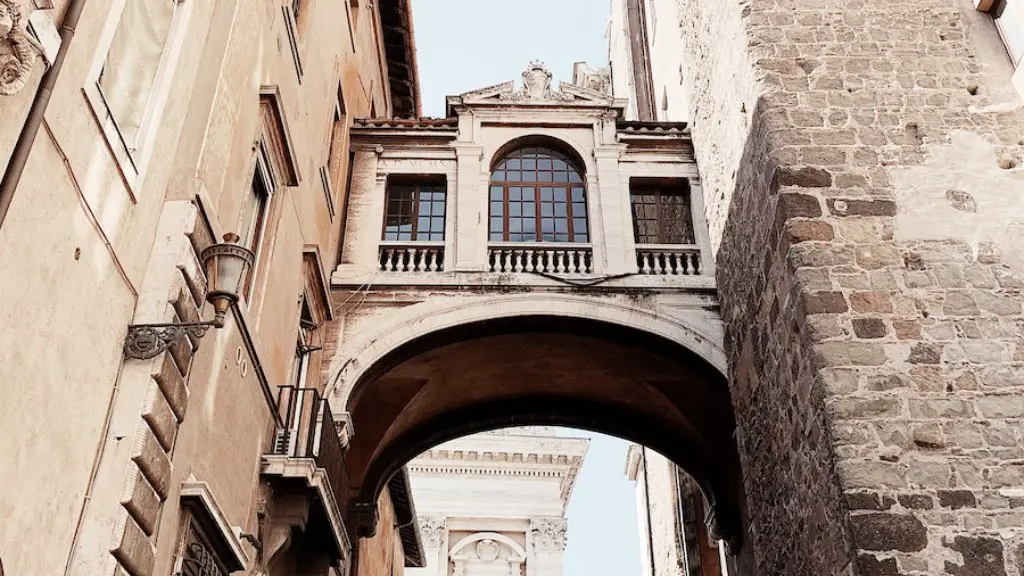In the 4th century AD, Barbarian invasions posed a major threat to the survival of the Roman Empire. Rome had conquered land as far as the Atlantic Ocean in the West, and its reach stretched into Central and Southern Europe and North Africa. However, its security began to be threatened by waves of migrating Germanic and Central European tribes, collectively known as Barbarians. One of the most notorious Barbarian leaders to attack Rome was Alaric I, who died in 410 AD. Alaric was a warrior of the Goths and was an extremely successful leader who was able to unify the various Barbarian tribes under his command.
At the time of Alaric’s attack on Rome, the Roman Empire was in chaos. The emperor had grown weak, and the imperial court was rife with corruption and disorder. This created an ideal opportunity for the Barbarians to exploit the Empire’s weaknesses. Alaric had a remarkable ability to sense and adapt to changing circumstances, and he was willing to use any means necessary to achieve his goals. He was ruthless and determined, and he was able to use brilliant tactics and strategy to achieve great victories against Rome.
In 408 AD, Alaric invaded Italy, beginning a series of campaigns that culminated in the sacking of Rome in 410 AD. Alaric was able to bring together a vast army of Goths and other Barbarians and march on Rome with an overwhelming force. He amassed an army of some 40,000 men and led them from present-day Austria to Italy. Alaric’s forces were well-armed and professional, and they caused serious damage to Roman towns and cities along the way.
Alaric defeated a number of Roman armies before he was finally able to breach the walls of Rome in 410 AD. The city had not been successfully sacked for 800 years, and the attack came as a great shock to the Roman citizens. Alaric ordered his troops to sack the city and then depart shortly afterwards. After his successful raid, Alaric moved on to other Roman provinces, eventually settling in Southern Italy, where he died shortly afterward.
The impact of Alaric’s attack on Rome was immense. The shock of the Barbarian invasion reverberated across the Roman Empire, and it led to the disintegration of the Empire within a few decades. Alaric’s success was a major factor in the crumbling of the Roman Empire, and it also served as a warning to other Barbarian chiefs that Rome’s defenses were not as strong as they once had been. Alaric’s attacks and other Barbarian invasions led to a major shift in the balance of power in Europe, and the Barbarians soon became a major force in the region.
Influence of Alaric I
Alaric’s successful capture of Rome was an important event in the history of the Roman Empire, and it served to remind the citizens of Rome of the fragility of their empire. Alaric I had become a symbol of Barbarian success, and his example inspired other Barbarian leaders to emulate his successes. Consequently, the era following the fall of the Roman Empire was marked by Barbarian invasions and the displacement of Roman power.
Alaric I’s legacy was also felt in the culture of the Roman Empire. Alaric’s invasion of Rome had a powerful impact on the Roman psyche, and it created a sense of fear and insecurity that can still be seen in modern Roman culture. Alaric was feared by Roman citizens and he was widely admired by the Barbarian tribes. He was a formidable figure, and his legacy continues to be felt in the region today.
Alaric I and Religion
Alaric I was also a champion of his religion, Arianism. This was an offshoot of Christianity, and it posited that Jesus was a subordinate figure to God the Father. This was seen as heresy by the Christian church, and Alaric’s successful campaigns to spread Arianism across the Roman Empire was a direct challenge to established Christian beliefs. Alaric’s actions were seen as a threat to the foundation of the Christian faith.
Alaric’s successful campaigns of conquest and his promotion of Arianism posed a major challenge to the authority of the Christian church in Rome. His success thus had a major impact on the spread of Christianity, and the clash of cultures between the Barbarian invaders and the Roman Empire soon became part of the narrative of the expansion of Christianity.
Alaric I and Legacy
Alaric I’s legacy lives on in the popular imagination of the Roman Empire and the Barbarians who destroyed it. His success as a Barbarian leader and his religious fervor have been romanticized in literature, art, and film. Alaric will always be remembered as a powerful leader and a brave warrior who posed a major threat to the Roman Empire.
Alaric I’s influence on the Roman Empire has been enormous. He played an important role in the decline of Rome, and his successful invasion of Rome served as a warning to the Roman citizens of their vulnerability. Alaric’s legacy will be remembered for centuries to come, and he will always be seen as one of the most successful Barbarian leaders to have ever threatened the Roman Empire.
Rise of Barbarian Kingdoms
The downfall of the Roman Empire also gave rise to a number of Barbarian kingdoms. Many of these new Barbarian rulers adopted the Roman model of government and used its administrative structures and practices to continue the rule of Barbarian culture. This blending of cultures led to the rise of a new type of kingdom, which many historians call “barbarian kingdoms”. This new form of government was extremely successful, and with the decline of the Roman Empire, the Barbarian kingdoms became the dominant power in Europe.
One of the most successful Barbarian kingdoms was that of the Visigoths, who had been united under Alaric’s rule. After Alaric’s death, the Visigoths established a powerful kingdom in Spain that lasted for centuries. Other Barbarian tribes, such as the Ostrogoths, Vandals, and Franks, also established powerful kingdoms that lasted for centuries. These Barbarian kingdoms had a major impact on the political, economic, and cultural development of Europe.
The success of the Barbarian kingdoms and their ability to resist Roman rule and later spread their culture across Europe was a testament to the strength of the Barbarian cultures. The Barbarians’ resilience and unwavering pursuit of freedom and independence ensured that they would remain an important force in the history of Europe.
Impact on Modern Europe
The impact of Barbarian invasions on the Roman Empire, and subsequently the European continent, is still felt today. The Barbarian tribes were instrumental in bringing an end to the Roman Empire, and their legacy still has an effect on Europe and its culture. Many of their customs, traditions, and beliefs still influence life in modern Europe.
The artistic and literary contributions of the Barbarians are particularly evident today. The writings of Barbarian leaders and their successes have been immortalized in literature and art. Furthermore, the Barbarian codes of honor have been enshrined in the laws and customs of modern European countries.
The Barbarian invasions of the Roman Empire have left an indelible mark on European history and culture. Alaric I and the other Barbarian leaders have come to be seen as heroic figures by later generations, and their legacy continues to be felt in Europe and the world today.
Conclusion
Alaric I was a great Barbarian commander and leader whose success in attacking Rome had a significant influence on the survival of the Roman Empire. Alaric’s skillful leadership and tactics allowed him to amass a vast army of Barbarians and march them on Rome with a force that was too powerful for the Roman army to stand up against. Alaric not only threatened the Roman Empire with his conquests, but his influence was also felt in the culture of the Roman Empire. Finally, his legacy continues to be felt in modern Europe, as many of the Barbarian customs, traditions, and beliefs still influence life in Europe.
